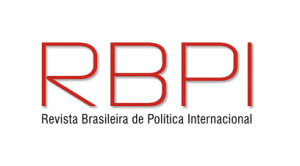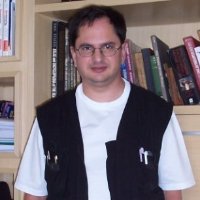Por Priscilla de Almeida Nogueira da Gama, member of the Editorial Team of RBPI, Brasília, DF, Brazil and Mariana Baccarini – Federal University of Minas Gerais (UFMG), Belo Horizonte, MG, Brazil, e-mail: marianabaccarini@gmail.com
 The paper published in Revista Brasileira de Política Internacional (RBPI vol. 57 – July/Dec – 2014), entitled “UN Security Council decision-making: testing the Bribery Hypothesis” analyses Liberal-Institutionalism and Structural Realism expectations about international organizations and how US-controlled international aid is granted, particularly whether it is related or not to political affinity and to the United Nations Security Council (UNSC) non-permanent membership. Eugenio Pacelli Diniz Costa gave an interview about his research to Priscilla de Almeida Nogueira da Gama, a graduate student in International Relations at Universidade de Brasília.
The paper published in Revista Brasileira de Política Internacional (RBPI vol. 57 – July/Dec – 2014), entitled “UN Security Council decision-making: testing the Bribery Hypothesis” analyses Liberal-Institutionalism and Structural Realism expectations about international organizations and how US-controlled international aid is granted, particularly whether it is related or not to political affinity and to the United Nations Security Council (UNSC) non-permanent membership. Eugenio Pacelli Diniz Costa gave an interview about his research to Priscilla de Almeida Nogueira da Gama, a graduate student in International Relations at Universidade de Brasília.
1. Why do you think it is relevant to analyze the UN Security Council decision-making over a perspective of the Liberal Institutionalism and of the Structural Realism?
From a theoretical standpoint, the UN Security Council decision-making provides an excellent test for both theories, since each of them puts forth expectations of behavior, and of what influences behavior, that are in stark contrast with the other’s. From a more practical standpoint, understanding what accounts for the way decisions are taken in the UN Security Council helps one to calibrate one’s own expectations about costs, risks and benefits and therefore to adjust one’s efforts and policies accordingly.
2. Along the article it is shown how the presence as a non-permanent member in the UNSC may influence getting US aid, especially during the Cold War. Why do you believe that the Cold War greatly influenced the US aid ?
Actually, what we’ve found is that, during the Cold War, if a country was a non-permanent member of the UNSC in very important years, the relative amount of US-controlled grant it got during or after membership would increase according not only with its financial needs, but also by its overall political affinity with the US, measured by voting behavior in the United Nations General Assembly. Conversely, after the Cold War, political affinity ceases to be relevant; it is also not relevant when membership is in years of comparatively low visibility of UNSC diplomatic activity. What our research suggests is that structure-driven political competition (not the Cold War per se) is a major factor of Great Powers’ behavior, even in major multilateral organizations.
3. In your conclusions you said that the bribery hypothesis seem valid in specific conditions and situations. Do you believe this may mischaracterize the study?
Slightly, in a sense. First, we call it “the bribery hypothesis” because a major, pioneering study on the subject called the described relationship as “bribery”. But our findings differ significantly from those of that study, and that’s why, in the end, we call it “support-for-aid”. Second, as we made clear in the article, this was a sample test. Our findings would benefit a lot from extending the empirical analysis to all UNSC non-permanent members, all years, all UNGA votes.
Para ler o artigo, acesse:
COSTA, E.P.L.D., and BACCARINI, M. UN Security Council decision-making: testing the bribery hypothesis. Rev. bras. polít. int. [online]. 2014, vol.57, n° 2, pp. 29-57. [viewed February 25th 2015]. ISSN 0034-7329. DOI: 10.1590/0034-7329201400303. Available from: http://www.scielo.br/scielo.php?script=sci_arttext&pid=S0034-73292014000200029&lng=en&nrm=iso
Link externo:
Revista Brasileira de Política Internacional – http://www.scielo.br/rbpi/
 Eugenio Pacelli Lazzarotti Diniz Costa, Department of International Relations at Pontifical Catholic University of Minas Gerais, Belo Horizonte, MG, Brazil, e-mail: eudiniz@pucminas.br.
Eugenio Pacelli Lazzarotti Diniz Costa, Department of International Relations at Pontifical Catholic University of Minas Gerais, Belo Horizonte, MG, Brazil, e-mail: eudiniz@pucminas.br.
Prof. Eugenio Pacelli Lazzarotti Diniz Costa is a Researcher (1-D) at the Brazilian National Council for Scientific and Technological Development (Conselho Nacional de Desenvolvimento Científico e Tecnológico CNPq) and also a State of Minas Gerais Researcher at the Foundation for Research Support of the State of Minas Gerais (Fundação de Amparo à Pesquisa do Estado de Minas Gerais Fapemig). D. Sc. in Production Engineering (Strategic Studies), M. Sc. in Political Science; graduated in Philosophy. He teaches at the Department of International Relations of the Pontifical Catholic University of Minas Gerais PUC-MG in Belo Horizonte, Brazil. Member of the International Institute for Strategic Studies IISS (London), of the Brazilian Association of International Relations ABRI and of the Group for Strategic Studies of Rio de Janeiro GEE. His main research area is on Strategic Studies, particularly on the Theory of War and on Defense Policy. Secretary-Executive of the Brazilian Association of International Relations from 2007-2009. In 2011, Prof. Diniz collaborated with the Brazilian Defense Ministry on the production of Brazil’s first ever White Paper on National Defense, to be made public in 2012, but disagrees a lot with what’s been drafted until now.
Como citar este post [ISO 690/2010]:












Últimos comentários